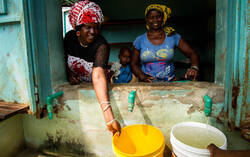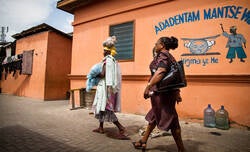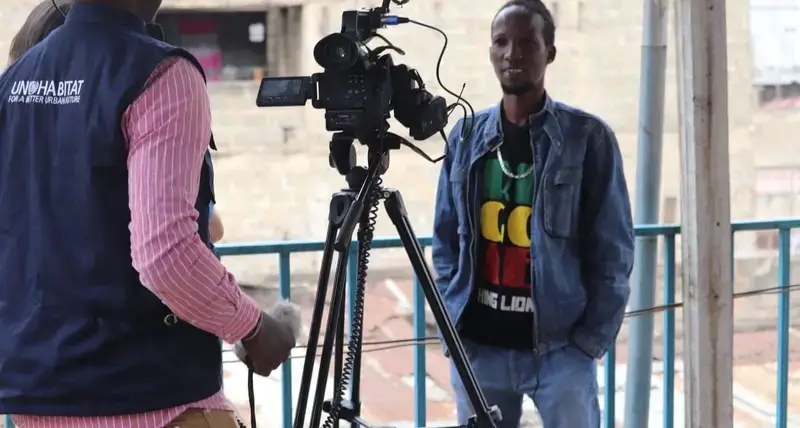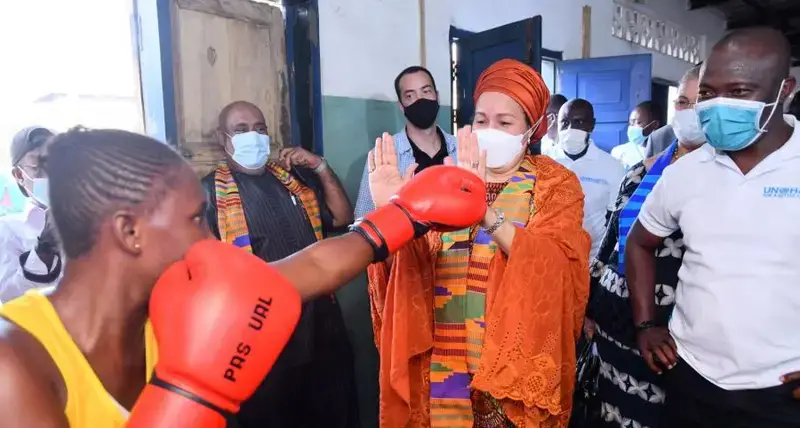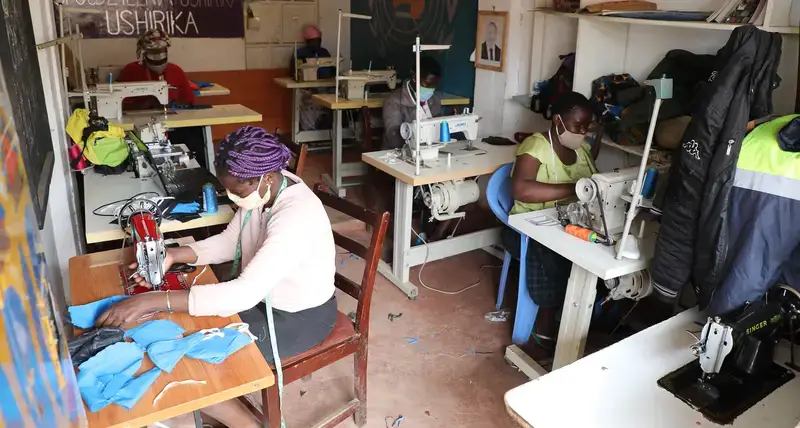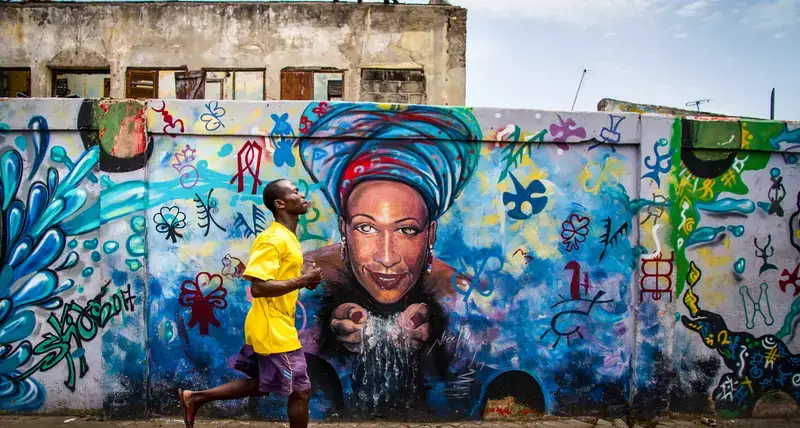Overview
UN-Habitat focuses on the biggest deprivations for slum communities: the lack of adequate and safe housing conditions, clean water supply, sanitation and secure land tenure. We concentrate on waste management, gender equality and human rights, climate resilience and participation of the local communities in the slum upgrading process.
The PSUP addresses the living conditions of millions of slum dwellers worldwide. It focuses on the challenges in slums and informal settlements and works in close cooperation with the communities based on partnership.
The UN-Habitat’s programme is at forefront, working on COVID-19 pandemic prevention in slums and informal settlements.
What is it about?
PSUP was founded in 2008 as a tripartite initiative of the Secretariat of the Africa, Caribbean and Pacific Group of States (ACP), the European Commission and UN-Habitat. In more than 40 countries and 190 cities, national and local authorities followed the programmes call for action. They are now investing in strategic, participatory slum upgrading activities and sustainable urbanization together with the local communities in their countries and cities. PSUP also operates through non-governmental organisations (NGOs), the private sector and universities worldwide.
PSUP-fields of work
Housing - PSUP works on the 2030 agenda to ensure access for all people to adequate, safe and affordable housing and basic services, which is essential for a sustainable urbanisation
Participation - PSUP brings all stakeholders together. In a strong network, communities, financial partners and governments seek solutions to improve people’s lives in the slums
Livelihood - Slum dwellers contribute to the economy of a city. The strengthening of the informal economy is a key source of employment and part of the PSUP mission
Water and Sanitation - PSUP takes action to provide safe, sufficient and affordable drinking water and sanitation facilities for slum dwellers and vulnerable communities
Tenure Security - PSUP supports slum communities to assert their right to safe housing and the right to stay
Waste Management - PSUP stand for a citywide approach and inclusion. All areas of a metropolis need to be connected to a proper waste management system
Gender equality - PSUP empowers women, promotes gender equality and strengthens human rights as they set the standards for people to live in freedom, equality and dignity
Climate change - PSUP supports slum dwellers to build resilience to withstand natural disasters and risks
Highlights
In Mtwapa, a town on the coast of Kenya, 7,000 households benefited from a PSUP slum upgrading pilot project implemented in 2014 by UN-Habitat in collaboration with its partners, the African, Caribbean and Pacific Group of States, the European Commission and the Government of Kenya. Clean drinking water was provided. Sewers were built and waste disposal was organised. A road network is now in the planning stage.
What PSUP stands for
- The programme pursues one principle in particular: participation and initiative. Slum dwellers should have a say in how they want to live in the future and play a decisive role in the development of their communities
- It encourages national and local governments to mobilise resources and contribute financially to address structural problems faced by slum dwellers
- It brings multiple stakeholders together and build platforms for learning, cooperation and coordination
- It guides financially-viable (pls add pdf of Financial Strategy, when ready), large-scale programmes and projects to improve slums
- It implements a city-wide approach to integrate slum upgrading with the city`s wider development strategies and plans
- It creates a progressive change of mindset, both at community and government levels
- It focuses on the most vulnerable groups in slums: women, children, youth, disabled people and the elderly in terms of their basic needs
- It helps to build capacities, creates job opportunities and improves the local economy to better people’s livelihoods through it’s Community Managed Funds (pls add document, when available)
PSUP successes – 12 YEARS OF IMPACT
SDG, Goal 11: 5million slumdwellers & 190 cities supported by PSUP
SDG, Goal 1: 51governments committed to participatory slum upgrading
SDG, Goal 17: US$ 1billion leveraged from development partners
SDG, Goal 10: Over 800,000 people with secure tenure
Highlights
SDG, Goal 6: Over 98,000 people supported to access water & sanitation
SDG, Goal 4: 1,200government and non-government partners with strengthened capacity in slum upgrading
SDG, Goal 13: Over 126,500 people supported to access to waste management services
